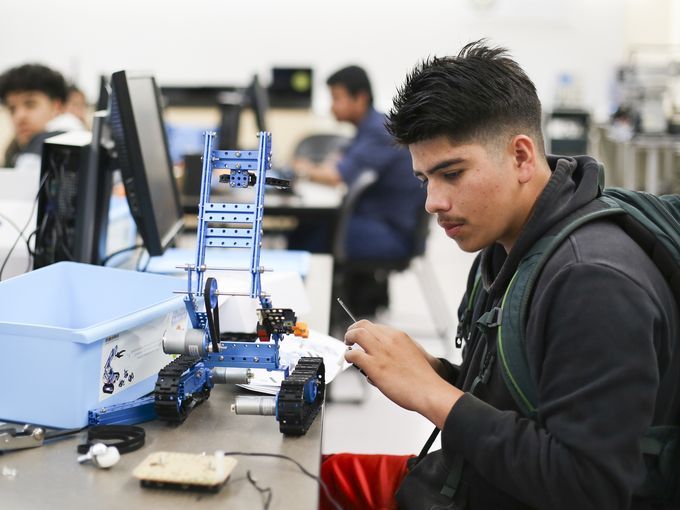European social partners kick off new project promoting the effective integration of migrant students in education
Published:
On 22 January 2018, in Brussels, the first Advisory Group Meeting to kick off the new ETUCE-led project “European Sectoral Social Partners in Education promoting effective integration of migrants and refugees in education” took place. This two-year project, co-funded by the European Commission, is carried out with the aim of providing a joint response from social partners in education to ensure the successful inclusion of students from migrant background in Europe.
This first Advisory Group meeting was the occasion for representatives from the national organisations partner to the project (ACOD-CGSP in Belgium, OELMEK in Cyprus, DLF in Denmark, TUS in Serbia, ESTUS in Slovenia, FESP-UGT in Spain, as well as representatives from EFEE) to meet for the first time and set up a preliminary frame for the effective implementation of the project. During the meeting, Advisory Group members had the occasion to exchange on their national experiences with welcoming into mainstream education students from a migrant background, and to provide them with all necessary tools to ensure their participation and success into education. Participants to the Advisory Group discussed the activities foreseen in the implementation phase of the project, namely three case study visits to Spain, Serbia and Belgium, followed by two training seminars in Denmark and Cyprus.
On the kicking-off of the project, Susan Flocken, ETUCE European Director, commented: ‘The commitment of social partners in education, at European and national level, to ensure that no student is left without quality education, is clearly proven by the inputs and high-level of expertise demonstrated during this day of discussions by the Advisory Group members of this project. This initiative’, she continued, ‘is particularly timely given the sudden influx of migrants since 2015, and the dire situation of thousands of young migrants that are left at a high risk of educational and social exclusion.’
The project will be carried out in the years 2018 and 2019, and its main outcomes will be a research report and a video documentary. Social partners are to discuss practical guidelines and concrete ways to favour the integration at all levels of education, as well as a quality framework of effective practices and policies for migrants and refugees’ integration in schools and education institutions. The project will be concluded with a final conference and the dissemination of the project outcomes. Its results are to feed into the wider European Sectoral Social Dialogue in Education (ESSDE) discussions.
To know more about the ESSDE, please click here.